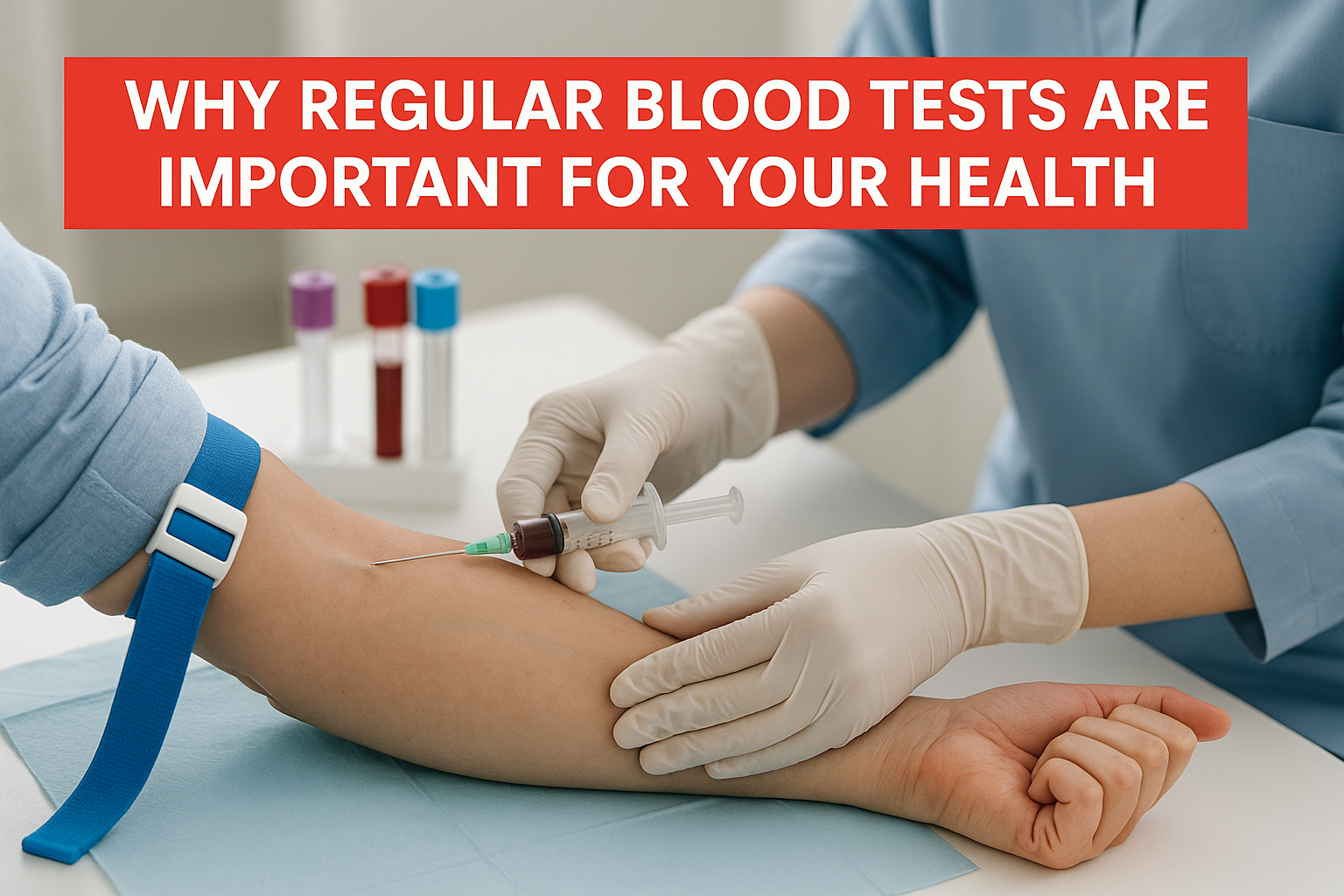
-
Posted By admin
-
-
Comments 0
Why Regular Blood Tests Are Important for Your Health
Blood tests are a cornerstone of preventive healthcare, providing critical insights into your overall well-being. From detecting early signs of chronic diseases to monitoring ongoing treatments, these routine screenings can help doctors intervene before a condition becomes serious. In regions like Ajman and across the UAE, where lifestyle-related conditions are on the rise, understanding the importance of regular blood tests is more essential than ever.
What Are Regular Blood Tests?
Regular blood tests refer to a series of laboratory evaluations that analyze different components of your blood. These tests can uncover a wide range of issues — from anemia and infection to diabetes and high cholesterol — often before symptoms even appear.
Common Types of Blood Tests
|
Test Name |
What It Checks |
Why It’s Important |
|
CBC (Complete Blood Count) |
Red and white blood cells, hemoglobin |
Detects infections, anemia, immune disorders |
|
HbA1c |
Average blood sugar over 2–3 months |
Key for diagnosing and managing diabetes |
|
Lipid Profile |
Cholesterol and triglyceride levels |
Assesses heart disease risk |
|
Liver Function Test |
Enzymes and proteins made by the liver |
Helps detect liver diseases and monitor medications |
|
Kidney Function Test |
Creatinine, urea, and other waste markers |
Monitors kidney health and hydration |
|
Thyroid Panel |
TSH, T3, T4 |
Identifies underactive or overactive thyroid |
|
Vitamin D & B12 |
Essential nutrient levels |
Important for energy, mood, and immune function |
The Role of Routine Blood Tests in Preventive Health
One of the most effective ways to detect diseases early is through routine blood screening. According to the World Health Organization, noncommunicable diseases (NCDs) account for nearly 74% of all deaths globally, many of which are preventable through early detection and management.
By identifying risk factors like high cholesterol or elevated blood sugar levels early, regular blood testing enables timely intervention, improving the chances of recovery and reducing the risk of complications.
“The best way to treat illness is to prevent it. Blood tests help you understand what’s going on inside your body before symptoms arise.” — Mayo Clinic
How Often Should You Get a Blood Test?
The frequency of blood tests depends on age, health status, and family history. As a general guideline:
- Annually for healthy adults
- Every 3–6 months for people with chronic conditions like diabetes or high blood pressure
- Before starting new medications or treatments
- During pregnancy or other significant life stages
If you’re unsure, your physician can guide you based on your individual health profile.
Benefits of Regular Blood Testing
1. Early Detection of Diseases
Detecting abnormalities before symptoms appear allows doctors to intervene early, minimizing health risks and reducing treatment costs.
2. Personalized Health Monitoring
With periodic tracking, you can understand how lifestyle changes or medications are affecting your body, allowing for more personalized care.
3. Supports Chronic Disease Management
Patients dealing with diabetes, high blood pressure, or thyroid issues rely on blood tests to track progress and adjust treatment.
4. Peace of Mind
Knowing that your vital indicators are within normal range can provide psychological comfort and motivation for healthier habits.
Signs You Might Need a Blood Test
Even without routine schedules, the following symptoms should prompt a visit to a general physician:
- Unexplained fatigue or weakness
- Sudden weight loss or gain
- Frequent infections
- Changes in appetite or mood
- Irregular heartbeat or dizziness
If you experience any of these symptoms, consult a provider for a routine blood test near me to rule out underlying causes.
Key Takeaways
- Regular blood tests can detect diseases early, improving health outcomes.
- Essential tests include CBC, HbA1c, lipid profile, and liver/kidney panels.
- Adults should get screened at least once a year, more often if managing a chronic condition.
- Discuss results with a doctor to make informed decisions about your health.
- In Ajman and across the UAE, timely lab screening is crucial due to rising rates of lifestyle-related conditions.
FAQs
1. What is the importance of regular blood tests for healthy individuals?
Even if you’re feeling well, blood tests can detect silent issues like high cholesterol or vitamin deficiencies that may not show symptoms until later.
2. Which blood tests should I get annually?
A standard annual panel typically includes CBC, lipid profile, liver and kidney function, and HbA1c — especially if you’re over 30.
3. Are regular blood tests safe?
Yes, blood tests are minimally invasive, quick, and safe with no significant side effects when performed in a certified lab.
4. Where can I get a routine blood test near me in Ajman?
You can visit trusted healthcare centers like Amtek Medical in Ajman for accurate and timely blood screenings.
5. Do I need to fast before a blood test?
It depends on the test. Fasting is usually required for blood sugar and lipid profile tests, but not for CBC or vitamin levels.
Conclusion
The importance of regular blood tests cannot be overstated. They are a powerful tool for detecting, monitoring, and preventing disease — a small investment for a healthier, longer life. Whether you’re managing a condition or just staying proactive, regular screenings are an essential part of modern healthcare.
If you’re located in Ajman or nearby, don’t delay book your routine blood test near me today with a trusted healthcare provider like Amtek Medical.


